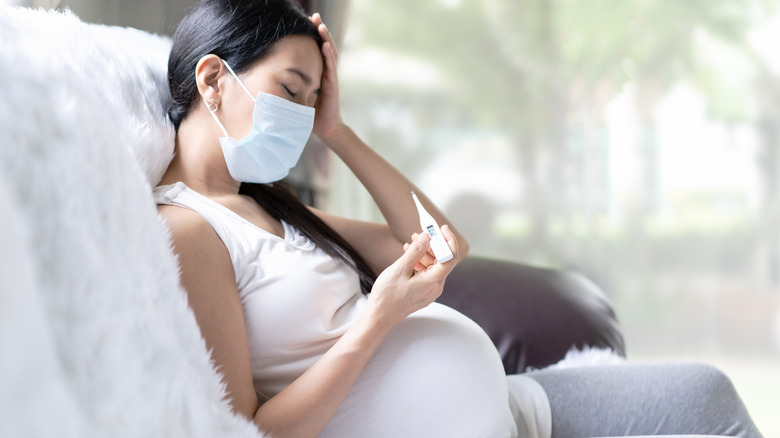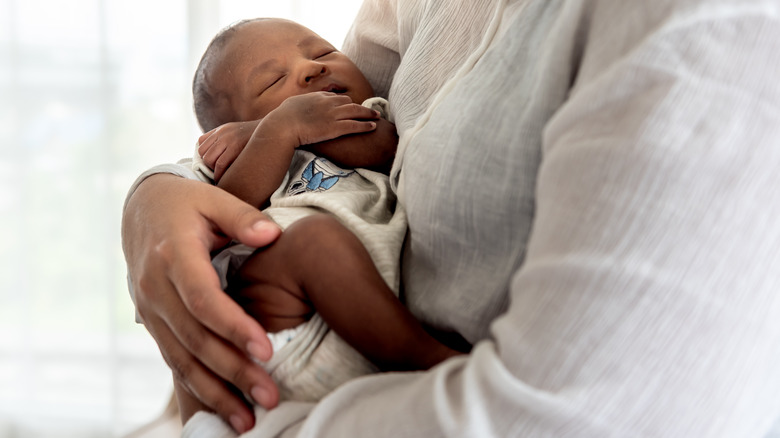Can COVID During Pregnancy Affect A Baby's Neurodevelopment?
The scientific community continues to study the effects of COVID-19 infection during pregnancy. The U.S. Centers for Disease Control and Prevention (CDC) reports that pregnant individuals are at a higher risk for severe cases of infection that may increase the chances of preterm birth or stillbirth.
Now, preliminary research presented at the 30th European Congress of Psychiatry suggests that fetal exposure to COVID-19 during pregnancy may impact the baby's neurodevelopment following birth. According to Verywell Family, at 6 weeks old, infants begin to support the weight of their head on their own and demonstrate self-soothing behaviors. In the study, however, researchers saw that babies exposed to COVID-19 in the womb (particularly late-term infections) struggled to relax their bodies when held and control their head and shoulder movements at 6 weeks old — this was compared to babies who had not been exposed to COVID-19 during pregnancy.
While the study has focused thus far on the short-term effects of viral infection, the research team will now turn their attention to potential long-term effects on speech and motor development of babies by monitoring those 18 to 42 months of age.
Further research is needed to determine risk of neurodevelopmental difficulties in infants
As per the study, researchers examined the babies of 21 women who had tested positive for COVID-19 during pregnancy in comparison to 21 healthy individuals. Taking into account factors such as infant age and sex, researchers tracked data during pregnancy and following birth including the women's psychological health, salivary measurements, cortisol levels, immune responses, and movement responses. After birth, researchers collected infant data using tests designed to measure their behavior and movement.
"We found that certain elements of the [tests] measurement[s] were changed in 6-week-old infants who had been exposed to the SARS-COV-2 virus. Effectively they react slightly differently to being held, or cuddled," explained researcher Ms. Águeda Castro Quintas in a news release.
The researchers acknowledged that further studies are still needed utilizing larger sample sizes. In addition, the study team pointed out that COVID-19 infection during pregnancy does not guarantee neurodevelopmental changes in infants. "Not all babies born to mothers infected with COVID show neurodevelopmental differences, but our data shows that their risk is increased in comparison to those not exposed to COVID in the womb," project leader Dr. Rosa Ayesa Arriola elaborated in a news release. "We need a bigger study to confirm the exact extent of the difference."


